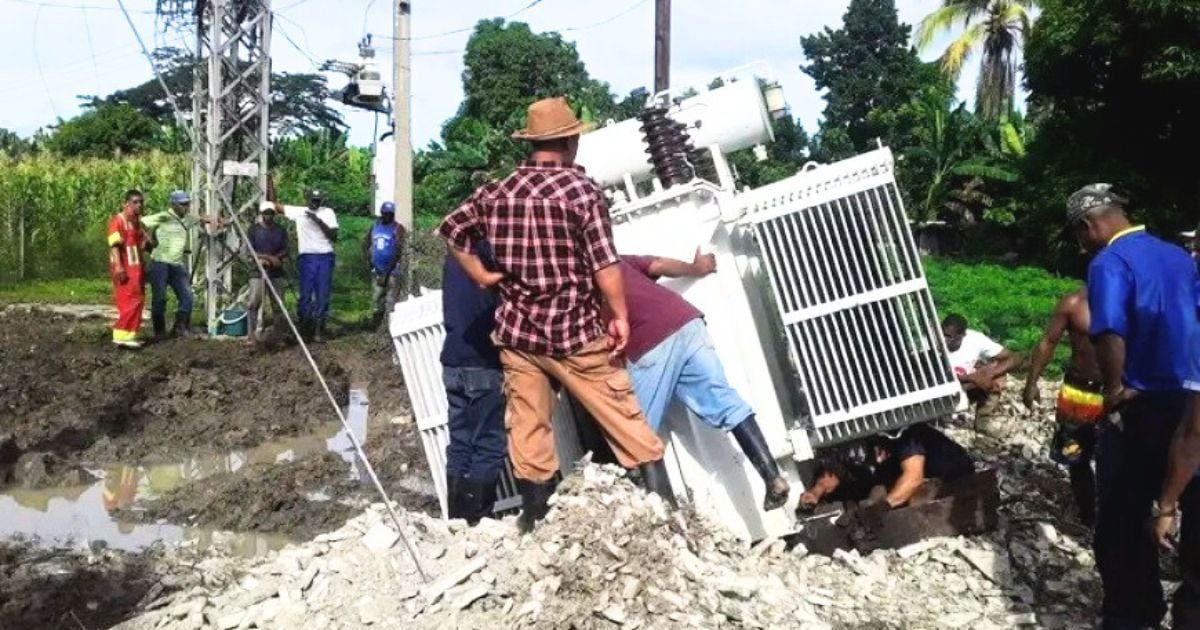The theft of dielectric oil from electrical transformers has become yet another symptom of Cuba's ongoing crisis, exposing the fragility of the nation's power grid and the regime's inability to safeguard critical infrastructure. The state-run newspaper Sierra Maestra has reported that the Cuban government plans to respond with severe measures to combat these thefts, which worsen power outages and leave thousands of citizens in dire conditions.
From August to November, numerous incidents were reported in Santiago de Cuba, particularly in the municipalities of Contramaestre, Palma Soriano, and San Luis. The most alarming theft occurred at the Paquito Rosales Substation, where thieves stole 300 liters of dielectric oil. This criminal act plunged thousands of residents in Dos Caminos, Paquito Rosales, and Estrella Roja into darkness, intensifying the hardships faced by the most vulnerable communities.
Elizabeth Govea Maceo from the Provincial Prosecutor's Office explained that these acts could be classified as sabotage, carrying penalties of up to 30 years in prison. "The actions of these individuals, considering the methods and means used to extract the oil from the transformers, could constitute crimes of Theft or Burglary, depending on how the extraction occurs. For those buying or selling this oil, it could lead to charges of Receiving Stolen Goods," she stated.
However, these potential punishments do not address the underlying issue: a collapsing energy system maintained by temporary fixes with no real plan to ensure the country's electrical stability. While authorities promise severe repercussions, the population continues to suffer the consequences. In places like Dos Caminos, residents have resorted to makeshift cooking methods and contend with food spoilage due to lack of refrigeration.
In response, smaller transformers and temporary power plants have been installed, offering only sporadic power supply. Beatriz Johnson Urrutia, the first secretary of the Party in Santiago de Cuba, assured on Facebook that there would be no impunity for those responsible. Yet, her statement comes amid a backdrop of frequent thefts at public facilities, highlighting systemic weaknesses in security and state control.
Government's Emergency Measures Amid Power Crisis
The current energy crisis has pushed the Cuban government to take drastic actions. This Tuesday, the regime announced a "special electrical contingency regime," which involves planned and extended blackouts lasting over 72 hours if the National Electrical System (SEN) fails to meet the country's power needs.
The publication of Decree 110 in the Official Gazette by the government of Miguel Díaz-Canel marks the formalization of this "exception regime." Similar to "states of alarm, exception, and siege" found in many countries' constitutions, it grants extraordinary powers to authorities to manage severe and unusual situations.
